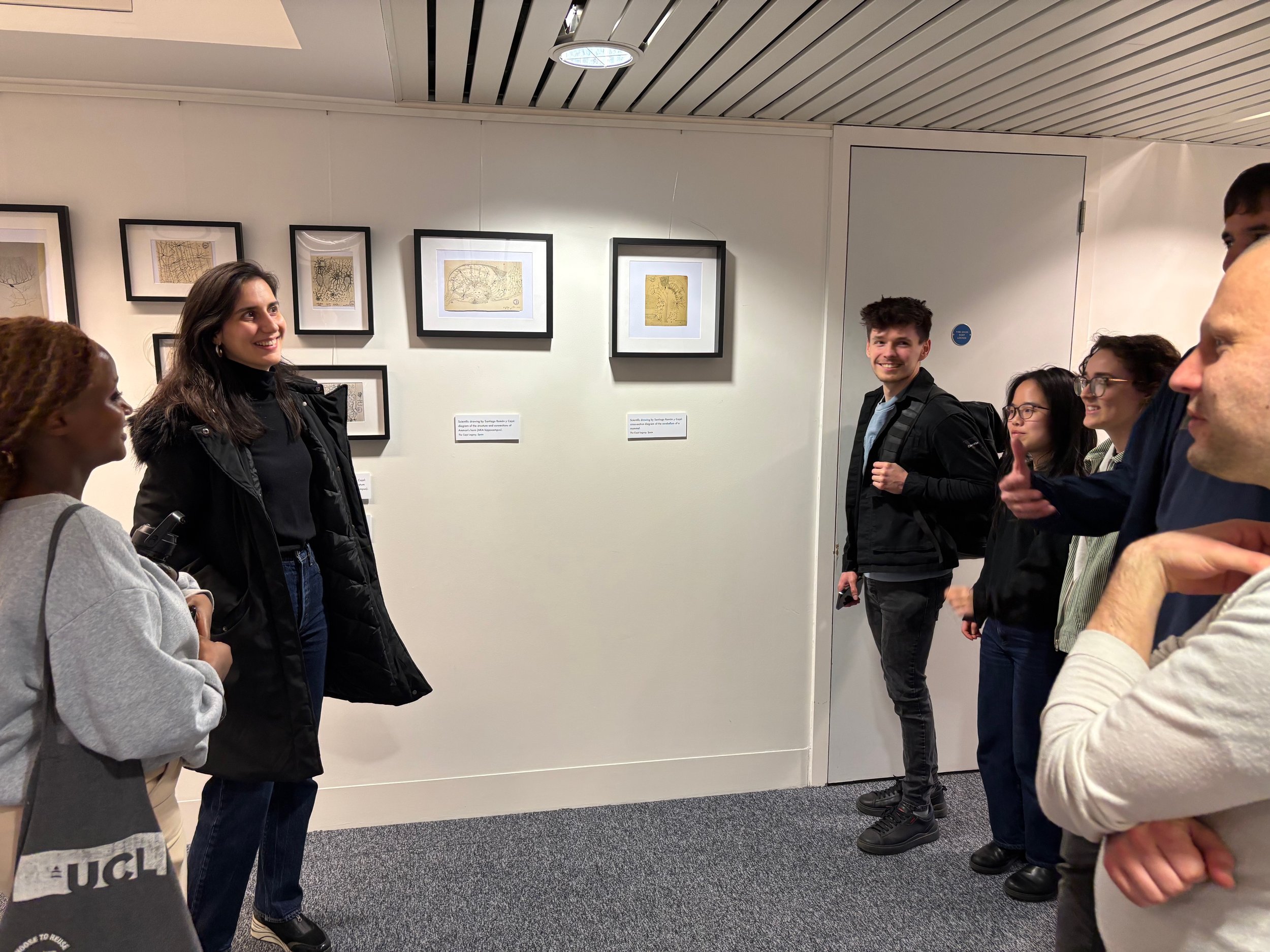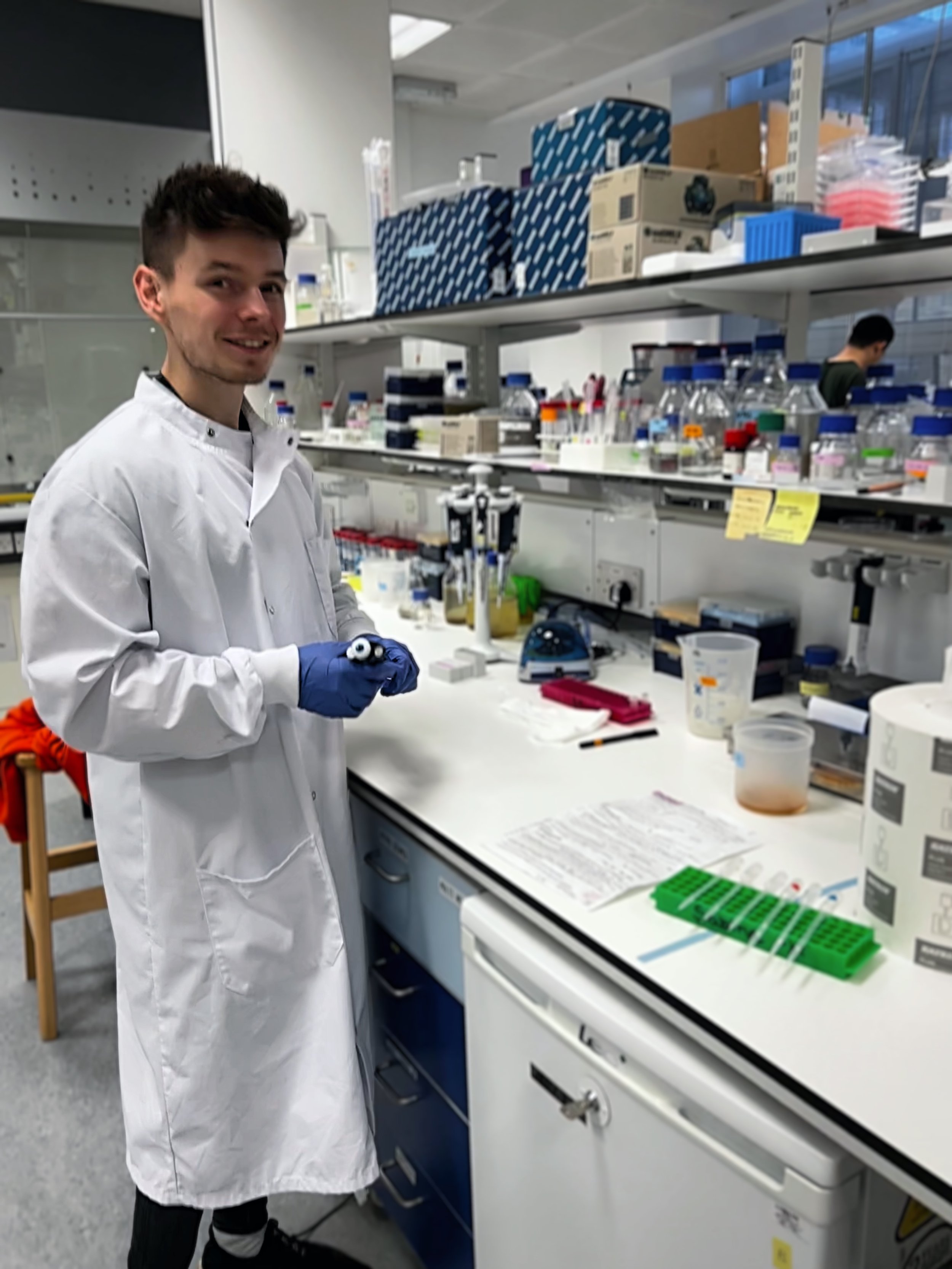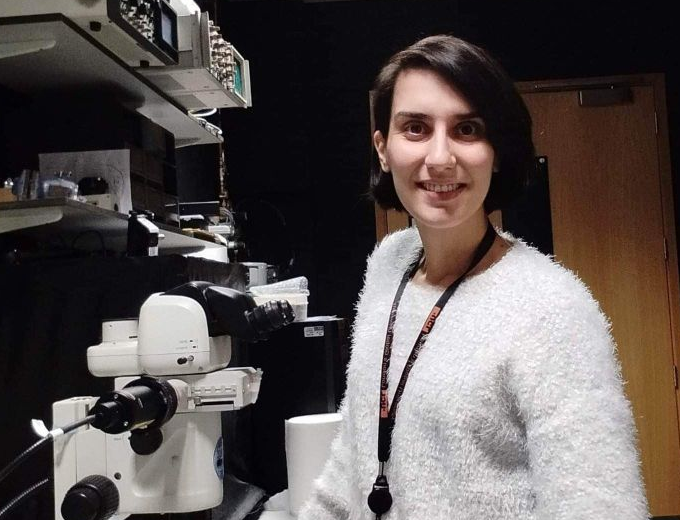We’re delighted that our study on supraspinal control of locomotion is published!
Animals can move in a variety of ways. Here, we tackle the question of how different forms of locomotion are controlled by reticulospinal command neurons (RSNs) in the brainstem, which send messages (descending commands) to circuits in the spinal cord. What are these messages and how are they encoded across the RSN population?
To investigate, we imaged a huge number of RSNs, at single cell resolution, while zebrafish generated a variety of different swim types in response to various sensory stimuli. We then built encoding models for every cell to relate its calcium activity to movement kinematics. This allowed us to identify low-dimensional structure in RSN population activity which we summarised with eight “functional archetypes” (essentially these are representative patterns of RSN activity). Our data fits with evidence from previous studies that supraspinal commands (and motor systems in general) have a low-dimensional, modular organisation. What we found especially exciting is that the activity of these modules is partitioned according to behavioural context. Specifically, five functional archetypes act combinatorially to control most zebrafish swims (three provide multiplexed control of speed and two control direction), whereas the remaining three functional archetypes are specialised for hunting. This suggests the RSN population neither has a universal control architecture, nor is it organised as a set of labelled lines, but instead it sits somewhere inbetween.
This was a really enjoyable and rewarding collaboration with James Fitzgerald and of course, congratulations to first author Joanna Lau.
Read the paper here: https://doi.org/10.1016/j.cub.2025.07.066































